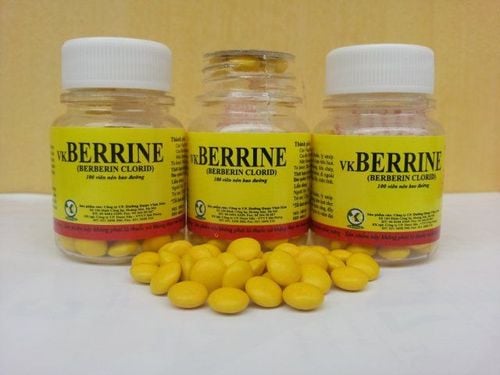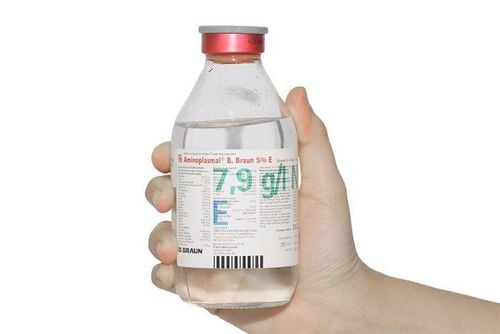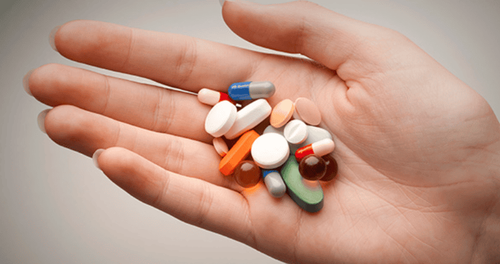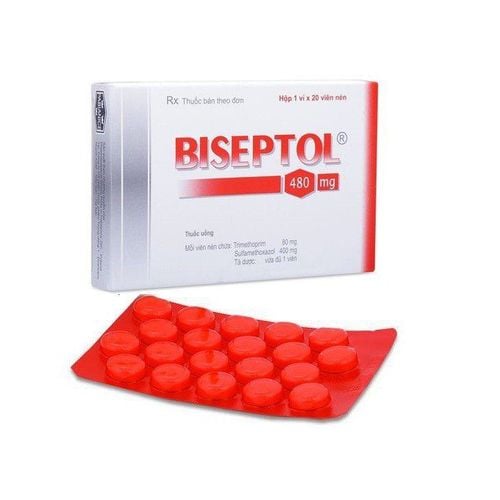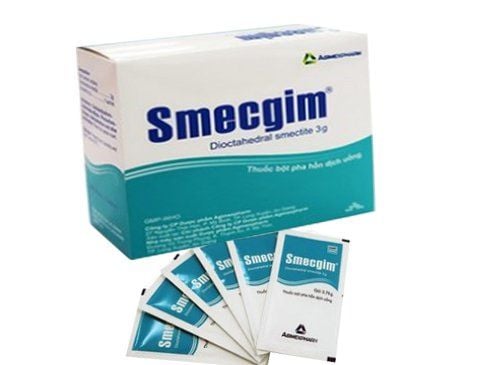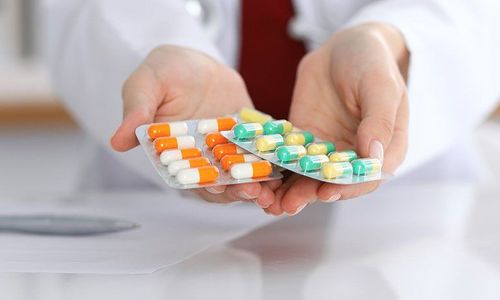This is an automatically translated article.
Glucolyte drug is used in the treatment of maintaining the supply of electrolytes, sugar, and trace elements in the preoperative and postoperative period, in diarrhea. What is Glucolyte? What does Glucolyte do? What is the correct way to drink? What points do you need to pay special attention to, and pay attention to when using? The following article will help you better understand the uses of Glucolyte and the notes when using Glucolyte.
1. What are the uses of Glucolyte?
1.1. What is Glucolyte? Glucolyte-2 is used for intravenous infusion, with the active ingredients being Zinc Sulfate.7H2O, Monobasic Potassium Phosphate, Sodium acetate.3H2O, Magnesium Sulfate, Potassium chloride, Sodium chloride, Dextrose anhydrous. The drug is prepared as a solution for intravenous infusion
1.2. What does Glucolyte do? Glucolyte drug works in:
Solution to maintain the supply of electrolytes, sugar, and trace elements. Maintenance treatment in the preoperative and postoperative period, in diarrhea. Providing and prophylactic treatment of K, Mg, Phosphorus & Zn deficiency. Concomitant use with protein solutions in parenteral nutrition.
2. Usage of blood pressure medicine Glucolyte
2.1. How to use Glucolyte For intravenous infusion, slow infusion does not exceed 0.5-1ml/min. 2.2. Dosage of the drug Glucolyte Dosage for children: Depending on the weight of the child Adult dosage: 1 - 4 bottles per day Infusion When a dose is missed, it is still best to take the medicine at the time prescribed by the doctor. Taking the medicine at the right time will ensure the best effect of the medicine. Usually, you can take the medicine 1-2 hours after the time ordered by the doctor, do not make up for it when the time is too far for the next dose.
On the other hand, in the case of drug overdose or taking too much medicine that requires emergency care, family members need to bring the prescription/vial of medicine the victim has taken. In addition, family members also need to know the height and weight of the victim to notify the doctor.
3. Contraindications of Glucolyte
Do not use Glucolyte-2 for people with a history of hypersensitivity to any of the ingredients in the drug. Contraindicated in cases of increased Potassium, Magnesium, Zinc, Phosphate in the blood. Do not use the drug in patients with kidney failure.
4. Note when taking Glucolyte
4.1. Use caution when used with caution in patients with oliguria. Pay attention to monitor patients when used for infusion for 24 hours after surgery. Patients with kidney disease, heart disease need to be closely monitored when taking the drug. During the course of treatment, patients need to adhere to the instructions, do not arbitrarily increase or decrease the amount of medication taken to be effective. It is necessary to consult with the treating physician before deciding to discontinue drug treatment. 4.2. Note For drugs that have expired or appear strange on the drug such as mold, drug color change, watery, should not be used again. Avoid storing the medicine in places with direct sunlight or high humidity. Do not leave the medicine near the place where children play, to avoid the case that children can play and accidentally drink. 4.3. Precautions for taking Glucolyte-2 during pregnancy Before taking the drug, always consult your doctor or pharmacist to weigh the benefits and risks of taking it during pregnancy
Look up the classification of drugs for women pregnant women according to the US Food and Drug Administration (FDA) below:
A = No risk; B = No risk in some studies C = Possible risk; D = There is evidence of risk; X = Contraindications; N = Don't know yet. 4.4. Note taking Glucolyte-2 when breastfeeding Usually doctors still advise breastfeeding mothers not to take the drug. Therefore, the mother will have to be very careful about taking the drug while breastfeeding. Carefully read the instructions for use the leaflets that come with the medicine box. Pay attention to the sections “Contraindications” and “Use during pregnancy or lactation”.
4.5. Notes on the use of Glucolyte-2 in the elderly Use caution with the elderly because the sensitivity to this drug may be greater than that of normal adults.
5. Side effects of Glucolyte
Side effects are mostly encountered by medical personnel's infusion technique or by contaminated solution or infusion device. Side effects may be encountered, such as fever, extravasation, infection of the injection site. . In case patients experience side effects such as itching, redness or any other symptoms suspected to be due to the use of the drug, they should consult their doctor for treatment or pharmacist advice. .
6. How to store Glucolyte
Concentration, content, active ingredients of the drug are affected if the drug is not good or when the expiry date is expired, leading to harm when used. Carefully read the information on the storage and expiry date of the medicine listed on the product packaging and the package insert. Usually medicines are stored at room temperature, away from moisture and light. When medication is past its expiration date or cannot be used, consult your doctor, pharmacist or garbage disposal for a safe way to dispose of it. Medicines should not be thrown down the toilet or plumbing unless asked to do so. Keep Glucolyte-2 out of the reach of children and away from pets. Before using Glucolyte-2, it is necessary to double-check the expiration date on the product packaging, especially with home-storage medicines.
Please dial HOTLINE for more information or register for an appointment HERE. Download MyVinmec app to make appointments faster and to manage your bookings easily.




